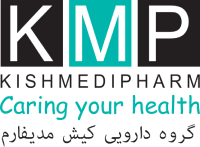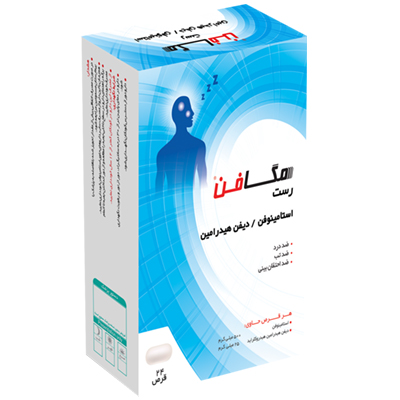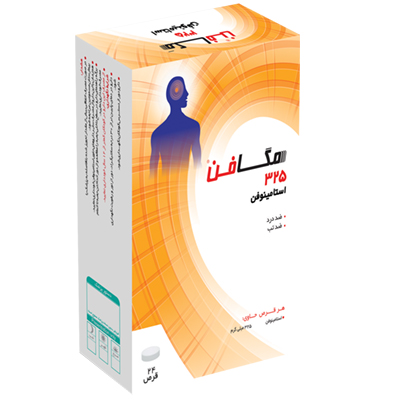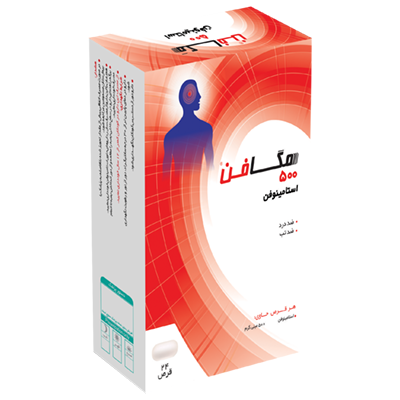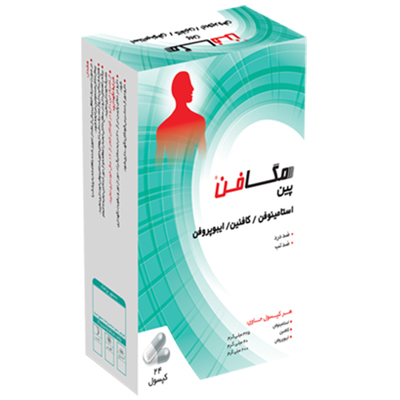In a world full of skin care products, anti-acne cream is known as one of the most effective solutions to combat acne and skin problems. But the main question is how to choose the best acne cream and benefit from its unique features? Not every product that carries the acne treatment label is necessarily effective, and knowing exactly what ingredients it contains, how it works, and how to use it correctly is the key to successful treatment. Choosing the wrong one or using it incorrectly may not only be ineffective, but also aggravate skin problems.
Below, we will explain everything you need to know about acne cream in a comprehensive and scientific way. From the basic features that every anti-acne cream should have to how to identify the best type of cream for your skin. We will also mention effective ingredients, important tips for use, and even contraindications so that you can make the best decision for your skin care with full knowledge. If you are looking for a principled and effective solution to treat acne, this article will lead you to accurate and practical answers. Join us to overcome these complexities and take a clear and scientific path to treating acne with the help of a suitable anti-acne cream. A future without acne and clearer skin awaits you.
Why should we use acne cream?
Using an anti-acne cream is one of the basic and effective solutions for dealing with skin problems caused by acne. These creams, with their specialized ingredients, help reduce inflammation, control skin oil secretion, and prevent new acne from forming. In addition, many anti-acne creams have healing properties that improve acne scars and skin blemishes. Regular and principled use of these products can speed up the treatment process and bring smoother and clearer skin. Below, we will mention some of the reasons why it is necessary to use an acne cream:
- Preventing acne scars and skin blemishes
- Reduces inflammation and redness caused by acne
- Controls skin oil secretion and prevents new acne from occurring.
- Helps cleanse skin pores of oil and dirt
- Repair of damaged skin tissues
- Preventing cystic and severe acne
- Accelerate the healing of acne scars
- Maintains proper skin moisture without causing excessive dryness
- Suitable for all skin types with special formulations.
- Reducing the risk of deep and resistant scars
- Overall improvement in skin appearance and clarity
- Easy and quick to use in daily routine
- Antibacterial compounds effective in combating acne-causing bacteria
- Helps treat acne vulgaris and rosacea
- Reducing skin irritation and allergies
- Preventing acne from recurring
- Strong anti-inflammatory and antiseptic effects
- Reducing the need for oral medications with high side effects
- Improve self-confidence with smoother skin
- Combined use with other treatment methods for better results
Using acne cream is an essential step to maintaining skin health and achieving a flawless appearance that should not be overlooked.
Important ingredients in anti-acne cream
In the world of skin care, anti-acne cream is one of the most important products for dealing with skin problems caused by acne and inflammation. The ingredients used in these creams play a key role in their effectiveness, and each is designed for a specific purpose. Accurate knowledge of these active ingredients helps users make a smart choice that suits their skin type and problem. Below, we will introduce and review the important and common ingredients in anti-acne creams and explain the role of each in detail.
Benzoyl peroxide (Benzoyl Peroxide)
This compound is one of the most effective topical antibacterials, reducing inflammation by killing acne-causing bacteria. It also helps gently exfoliate the skin and unclog clogged pores, thereby preventing new breakouts.
Salicylic acid (Salicylic Acid)
Salicylic acid is an exfoliating compound that penetrates deep into the skin's pores, removing excess oil and dead skin cells. It has anti-inflammatory properties and is very effective in controlling blackheads and whiteheads.
Retinoids (Retinoids)
Retinoids are derivatives of vitamin A that help reduce inflammation and improve skin texture by accelerating cell renewal. These compounds play a significant role in treating cystic acne and preventing acne scars.
Azelaic acid (Azelaic Acid)
This acid has antibacterial and anti-inflammatory properties and is very useful in treating inflammatory acne as well as reducing acne scars. Its use brightens the skin and reduces redness.
Niacinamide (Niacinamide)
Niacinamide, or vitamin B3, is a powerful anti-inflammatory and skin moisturizer that helps reduce redness and irritation caused by acne. It also helps control breakouts by regulating sebum production.
Sulfur (Sulfur)
Sulfur, due to its antibacterial and antifungal properties, helps reduce oiliness and dry out acne. This compound is commonly used in anti-acne creams to quickly treat inflammatory acne.
Clindamycin (Clindamycin)
This topical antibiotic is used in acne creams to inhibit the growth of acne-causing bacteria and reduce skin inflammation. Its combined use with other ingredients increases the effectiveness of the treatment.
Tretinoin (Tretinoin)
A potent retinoid that is effective in accelerating skin exfoliation and repairing damaged tissue. Tretinoin is very effective in treating severe acne and preventing scarring.
Lactic acid (Lactic Acid)
This alpha hydroxy acid helps improve skin texture and tone by gently exfoliating the skin. It also helps moisturize the skin and reduce inflammation caused by acne.
Tea tree oil (Tea Tree Oil)
Tea tree oil is a natural compound with antibacterial and anti-inflammatory properties that help reduce inflammatory acne and inhibit skin infections. It is a natural alternative to antibiotics.
Each of these ingredients plays an important role in the formulation of an acne cream and can be used in combination or separately, depending on the type of skin and the severity of acne. Understanding these ingredients will help you make a targeted and effective choice and successfully complete the treatment process. Regular and principled use of products containing these ingredients can be the key to achieving smooth, acne-free skin.
| Composition | Role and application |
| Benzoyl peroxide (Benzoyl Peroxide) | Strong antibacterial, reduces inflammation, gently exfoliates, unclogs clogged pores, prevents new acne |
| Salicylic acid (Salicylic Acid) | Deep exfoliator, removes oil and dead cells, anti-inflammatory, controls blackheads and whiteheads |
| Retinoids (Retinoids) | Vitamin A derivatives, accelerate cell regeneration, reduce inflammation, improve skin structure, treat cystic acne and prevent acne scars. |
| Azelaic acid (Azelaic Acid) | Antibacterial, anti-inflammatory, treatment of inflammatory acne, reduction of acne scars, skin lightening |
| Niacinamide (Niacinamide) | Strong anti-inflammatory, moisturizing, reduces redness and irritation, regulates skin oil production |
| Sulfur (Sulfur) | Antibacterial and antifungal, reduces skin oiliness, dries inflammatory acne |
| Clindamycin (Clindamycin) | Topical antibiotic, inhibits the growth of acne-causing bacteria, reduces inflammation |
| Tretinoin (Tretinoin) | Strong retinoid, accelerates exfoliation, regenerates damaged tissues, treats severe acne and prevents scarring |
| Lactic acid (Lactic Acid) | Gentle exfoliation, improving skin texture and tone, moisturizing, reducing inflammation caused by acne |
| Tea tree oil (Tea Tree Oil) | Natural antibacterial and anti-inflammatory, reduces inflammatory acne, inhibits skin infections, natural alternative to antibiotics |
Among the various topical creams and gels available for reducing acne, Acnemis topical gel holds a special place due to its effective combination of clindamycin and tretinoin. This product, produced by Kish Medipharm Pharmaceutical Company, is a comprehensive solution for dealing with severe acne and skin inflammations by utilizing the antibacterial properties of clindamycin and the exfoliating and skin regeneration capabilities of tretinoin. Clindamycin helps reduce inflammation by inhibiting the growth of acne-causing bacteria, and tretinoin accelerates the cell renewal process and prevents the formation of acne scars. Regular use of this Topical gel As part of a combination treatment, it can play an effective role in quickly treating acne and improving the appearance of the skin. Below, we will examine other important ingredients in anti-acne creams and their role to give you a comprehensive perspective on choosing the best product.
Necessary care after using anti-acne cream
Using an anti-acne cream is one of the essential and effective steps in controlling acne, but success in this path is not limited to regular use of the product. After-care of using an anti-acne cream plays a vital role in consolidating the results of treatment and maintaining skin health. These complementary measures prevent side effects such as dryness, inflammation and skin sensitivities and accelerate the skin repair process.
Ignoring these tips can lead to new skin problems and slow down the healing process. Therefore, knowing the correct aftercare methods for using anti-acne cream is a key factor in achieving clear and healthy skin. Below, we will discuss the most important aftercare tips for using anti-acne cream so that you can get the best results from your treatment.
- Regular use of acne cream as directed by your doctor or pharmacist
- Avoiding direct sunlight and using appropriate sunscreen.
- Avoid touching or picking at pimples to prevent inflammation and infection.
- Keeping the skin moisturized with appropriate, non-comedogenic creams
- Gently washing the skin with alcohol-free products and harsh soaps
- Avoid using products containing retinoids or strong acids at the same time without a doctor's prescription.
- Using lukewarm water instead of hot water for washing
- Avoiding heavy makeup and using hypoallergenic cosmetics
- Paying attention to healthy eating and avoiding fatty and processed foods
- Avoid stress and get enough sleep to help the skin heal.
- See a doctor if allergic reactions or severe skin irritation occur.
- Store anti-acne cream in a cool, dry environment and out of reach of children.
- Avoid excessive use and increasing the dose of the cream without consulting a specialist.
- Using complementary products with anti-inflammatory and restorative properties
- Avoid using rough scrubs during the treatment period.
- Taking care of sensitive areas such as around the eyes when using cream
- Regular follow-up of the treatment process and recording of skin changes
- Avoiding excessive sweating and skin contact with contaminants
- Avoid using multiple types of anti-acne creams at the same time.
- Maintaining regularity in the timing of cream use and avoiding sudden discontinuation of treatment
Following these tips will not only speed up the treatment process, but also prevent unpleasant side effects and help maintain healthy and fresh skin. By following these precautions, using anti-acne cream becomes an effective and safe process and can be a surefire way to achieve healthy, acne-free skin.
Do not use anti-acne cream during pregnancy and breastfeeding.
Pregnancy and breastfeeding are considered to be the most sensitive stages of every woman's life; a period that requires special and careful care to ensure the health of the mother and the fetus or infant. During this period, many medications and care products, including anti-acne creams, may pose serious risks that can sometimes affect the health of the fetus or infant.
Incorrect or unsupervised use of anti-acne creams during this period can lead to the absorption of harmful chemicals through the skin and directly or indirectly threaten the health of the mother and child. For this reason, it is vital to follow medical instructions and avoid the arbitrary use of these types of creams. We will discuss the main reasons for not using anti-acne creams during pregnancy and breastfeeding and will state the most important points and warnings:
Risk of transferring chemicals to the fetus: Some ingredients in acne creams, such as tretinoin, antibiotics, and salicylic acid, can cross the placenta and affect fetal development.
Systemic absorption and side effects: The skin is more sensitive during pregnancy, and the local absorption of medications into the bloodstream increases, which may cause side effects such as skin irritation, inflammation, and severe allergies.
Unknown effects on breast milk: Many active ingredients in acne creams can pass into breast milk and pose a risk to the health of the baby.
Lack of safety approval by medical authorities: Most anti-acne medications are in the category of medications whose complete safety during pregnancy and breastfeeding has not been proven, and it is recommended to avoid their use.
Safer alternatives are available: natural and alternative care methods that are safe for both mother and baby, including gentle skin care and a proper diet.
Important points regarding the use of anti-acne cream during pregnancy and breastfeeding
- Consult a medical professional before using any anti-acne cream.
- Avoid using creams containing tretinoin, isotretinoin, and some antibiotics.
- Instead of chemical creams, use natural skin care methods.
- If you experience any allergic or abnormal reaction, consult a doctor immediately.
- A proper diet and reducing consumption of high-fat and processed foods help improve acne.
- It is recommended to use products that are free of fragrances and skin irritants.
- It is very important to maintain skin hygiene and wash gently on a regular basis.
- Strong peels and arbitrary use of oral medications should be strictly avoided.
- Special care should be taken during breastfeeding and unauthorized products should be avoided.
- Any alternative or complementary treatment should be carried out under the supervision of a doctor and with complete confidence.
Failure to follow these tips can lead to unpleasant and irreparable consequences for the mother and child; therefore, awareness and caution in this area are vital. Responsible and conscious use of anti-acne cream and all skin care products during this period will guarantee the health and peace of mind of the mother and child.
Given the special sensitivity of pregnancy and breastfeeding, addressing the issue of acne during pregnancy requires great care and expertise. For this reason, we have addressed this area in a separate and comprehensive content so that dear mothers can make the best decisions for the health of their skin and their baby with full knowledge. This specialized article will answer all your questions about Acne during pregnancy It provides answers and valuable scientific and practical guidance. We recommend that you read it to gain accurate and practical information.
Key Features of an Effective Anti-Acne Cream
An effective anti-acne cream should be more than just a simple product; it should be a combination of innovative technologies and precise formulations that can penetrate deep into the skin and target the main factors that cause acne. These products should not only reduce inflammation, but also regulate the secretion of sebum, prevent the growth of harmful bacteria and accelerate the skin's regeneration process. Also, compatibility with skin types, lack of sensitivity and compatibility with specific skin conditions are among the key factors in choosing an anti-acne cream that can make the difference between success and failure in treatment.
In the rest of this article, we will examine the essential and key features of an effective anti-acne cream that anyone looking for the best solution to combat acne should pay attention to. Key Features of an Effective Anti-Acne Cream:
- Anti-inflammatory ingredients: Quickly reduce skin redness and inflammation
- Antibacterial properties: Inhibit the growth of acne-causing bacteria
- Oil regulator: Controls sebum production to prevent acne.
- Rapid absorption and deep penetration: effective impact on the underlying layers of the skin
- Compatible with all skin types, especially sensitive skin: reduces the risk of allergies and irritation
- No dryness or peeling: Maintains the skin's natural moisture
- Helps the skin regeneration process: accelerates acne healing and reduces scars
- Formulation free of harmful substances: free of parabens, phthalates, and allergenic compounds
- Ease of use and combination with skin routine: Can be used simultaneously with other products
- Scientific approvals and reputable licenses: ensuring product quality and safety
Choosing an acne cream that has all these features will not only help treat acne but will also improve the overall health of your skin. By understanding these features, you can choose the best product for your individual needs and skin condition, and take an effective step towards successful and lasting treatment. To view all acne treatment methods and complete skin care solutions, please AHere Click.Bottom of Form
Antibacterial properties of anti-acne cream
In the complex and multi-layered world of skin care, dealing with acne as one of the common challenges always requires a specialized and efficient solution. Acne cream, with its unique antibacterial properties, plays a vital role in reducing skin inflammation and inhibiting acne-causing bacteria.
This amazing feature not only provides immediate relief to inflamed skin, but also prevents the recurrence of skin lesions by deeply cleansing clogged pores. The appeal of these creams lies in their specialized and scientific ingredients, each of which fights acne factors with a targeted mechanism while ensuring skin health and freshness.
Experience shows that the careful and conscious selection of an acne cream with antibacterial properties is an essential step in the effective and sustainable treatment of acne. These ingredients intelligently inhibit the growth of harmful microorganisms, restore the natural balance of the skin and prevent dryness or unwanted irritation. The dream of having smooth skin, free from inflammation and annoying pimples, will no longer be out of reach with the regular use of these specialized products.
Choosing a cream for acne vulgaris and acne rosacea
Acne is a common skin problem that has different types, and each type requires a different treatment approach. Two of the most common and at the same time most complex types of acne are acne vulgaris and acne rosacea, and understanding the characteristics and causes of each plays an invaluable role in choosing the right anti-acne cream.
Acne vulgaris It manifests as pustules, blackheads, and inflammatory cysts, and is most common in adolescence and young adulthood. This type of acne is caused by clogged pores, increased sebum production, and inflammation caused by bacteria. Therefore, its treatment requires products that can control sebum while also having antibacterial and anti-inflammatory properties.
In contrast, Acne rosacea It is a chronic skin disorder characterized by redness, inflammation, and sometimes small bumps, usually seen in the central areas of the face. This type of acne is characterized by hypersensitivity of the skin and severe inflammatory reactions, so its treatment requires products with mild, anti-inflammatory, and soothing ingredients that prevent further skin irritation.
Choosing the right acne cream for each of these conditions is the first step towards successful treatment and minimizing side effects. Below, we will look at the right creams for each of these conditions:
Creams suitable for acne vulgaris
- Contains benzoyl peroxide to inhibit acne-causing bacteria
- Retinoid compounds to accelerate cell regeneration and exfoliate pores
- Salicylic acid for deep cleansing and oil control
- Mild anti-inflammatories to reduce swelling and redness
- Non-comedogenic formulation to prevent pore blockage
Creams suitable for acne rosacea
- Contains niacinamide to reduce inflammation and strengthen the skin's defense barrier
- Natural antioxidants like aloe vera and green tea to soothe and protect
- Anti-redness and soothing ingredients to reduce skin sensitivity
- Fragrance-free and irritant-free formulation
- Mild antibacterial and anti-inflammatory ingredients to control symptoms without dryness
Careful selection based on the specific needs of the skin in each of these skin diseases not only accelerates the treatment process, but also prevents unwanted complications and aggravation of symptoms. For this reason, scientific and informed knowledge of the types of acne and their appropriate creams is of particular importance, which can be the key to achieving healthy, clear, and inflammation-free skin. Regular and principled use of a specialized anti-acne cream that is appropriate for the type of acne paves the way for recovery and improves the quality of life.
Guide to the correct use of anti-acne cream
Dealing with acne is one of the serious challenges in skin care that requires complete care and awareness in the use of specialized products such as anti-acne cream. Incorrect or careless use of these creams can not only cause no improvement but sometimes aggravate skin problems. For this reason, a guide to the correct use of anti-acne cream, which is formulated in stages, is the key to achieving desired results and sustainable treatment. Steps for the correct use of anti-acne cream:
- Thorough skin cleansing: Use mild cleansers that are appropriate for your skin type.
- Dry the skin completely: Prevent moisture from remaining before applying acne cream.
- Use the right amount of cream: Follow the recommended dosage to avoid skin irritation.
- Apply the cream evenly: cover the entire affected area without excessive accumulation.
- Order of use in skin routine: Apply cream before moisturizer and after cleansing.
- Regular and continuous use: maintain the treatment process without interruption for better results
- Use a moisturizer: to reduce dryness and maintain skin moisture balance
- Sun protection: with the help of oil-free sunscreens suitable for acne-prone skin
- Avoiding contact with irritants: such as heavy cosmetics and direct sunlight
- Regular doctor visits: Follow up on results and adjust treatment if needed
By following this guide, you can not only increase the effectiveness of your anti-acne cream, but also maintain overall skin health and prevent possible complications. Proper and intelligent use of these creams is a practical and effective solution for treating superficial to severe acne that everyone should be familiar with.
The role of antioxidants in anti-acne cream
Antioxidants are compounds that neutralize free radicals, preventing cell damage and oxidative stress. In acne cream formulations, these ingredients help reduce skin inflammation, protect cells from environmental damage, and accelerate skin repair. By strengthening the skin's defense system, antioxidants not only improve the appearance of acne, but also prevent the appearance of dark spots and acne scars, and help maintain youthful and vibrant skin. Here are some key points about the role of antioxidants in acne creams:
- Neutralizing free radicals and reducing oxidative stress
- Reduces inflammation and irritation caused by acne
- Protect skin cells from environmental damage
- Accelerates the skin repair and regeneration process
- Preventing acne spots and scars
- Maintaining the health and youth of acne-prone skin
- Enhance the antibacterial and anti-inflammatory effects of worms
- Overall improvement in skin texture and color
- Increases skin resistance to external damaging factors
- Creating a protective layer and strengthening the skin's defense barrier
The specialized combination of antioxidants in the formulation of anti-acne cream is a milestone in the treatment and care of acne-prone and inflammatory skin. This intelligent solution is a bridge between prevention and treatment that comprehensively and scientifically improves the quality of skin life. Now is the time to make an informed choice and benefit from the unparalleled power of new technologies in the field of skin health.
Conclusion
Reduce acne, especially at different stages of severity, type and Cause of acne It requires a thorough understanding of how to choose and use care products such as acne cream. Choosing an effective anti-acne cream is not just about the brand name or advertising; rather, examining the active ingredients such as salicylic acid, benzoyl peroxide, niacinamide, retinoids, and antioxidants play a key role in the effectiveness of the treatment. Proper use of these products requires adherence to hygiene principles, regular use, and after-care such as moisturizing and sun protection.
In addition, acne creams should be used with caution or avoided altogether during certain periods, such as pregnancy and breastfeeding, as some ingredients can be harmful to the fetus or infant. On the other hand, understanding the differences in the treatment of different types of acne, such as acne vulgaris or rosacea, is very important in choosing the right cream.
Overall, a scientific, smart, and consistent approach to using anti-acne cream is the key to achieving healthy, scar-free, and inflammation-free skin. This article will be a comprehensive guide to help you make better decisions on your acne treatment journey and restore your skin's clarity and freshness.
